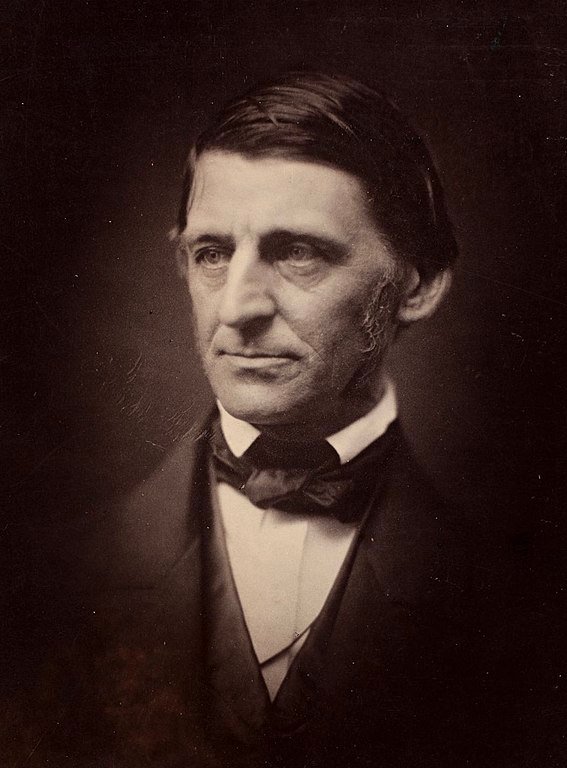Ralph Waldo Emerson Self-Reliance
Ralph Waldo Emerson’s essays, particularly his seminal work ‘Self-Reliance,’ form the cornerstone of his philosophy emphasizing individuality and inner strength.
Emerson argues that each person possesses an innate wisdom that must be trusted, which serves as a fundamental principle of self-reliance.
This notion posits that individuals should draw upon their personal experiences and insights rather than conforming to the expectations and norms of society.
By doing so, they can cultivate a unique identity and voice, ultimately achieving true self-sufficiency and autonomy.
Emerson’s call for embracing one’s intuition is a pivotal aspect of his ideology.
He believed that relying on personal intuition is essential for authentic living and creativity.
This emphasis on self-trust encourages individuals to seek their own path, promoting the idea that each person’s perspective is valuable.
Emerson’s assertion that “the only person you are destined to become is the person you decide to be” encapsulates this core message of self-reliance.
Urging individuals to embrace their inherent potential.

Ralph Waldo Emerson fundamental principle of self-reliance
Furthermore, Emerson’s rejection of societal conformity is crucial to understanding his perspective on self-reliance.
He critiques the tendency to adhere to collective norms, suggesting that such compliance stifles innovation and personal growth.
By advocating for independence from societal constraints, Emerson encourages individuals to challenge conventional wisdom and develop their own beliefs.
This push against conformity is not only a reflection of Emerson’s personal values but also serves as a catalyst for the modern self-reliance movement.
In essence, the foundation of self-reliance in Emerson’s work is built on individuality, intuition, and the courage to resist societal pressures.
These interconnected themes create a robust framework that continues to resonate in contemporary discussions about personal development and self-worth.
Understanding these principles offers readers valuable insight into Emerson’s contributions to the philosophy of self-reliance and its relevance today.
The Relevance of Emerson’s Ideas in Today’s World
Ralph Waldo Emerson’s principles of self-reliance, established in the 19th century, resonate powerfully within the contemporary landscape.
Where individuals increasingly confront societal pressures, mental health challenges, and the pervasive influence of social media.
In a world characterized by constant connectivity, many find themselves grappling with external expectations that can undermine their individuality and emotional well-being.
Emerson’s advocacy for self-reliance encourages individuals to trust in their own intuition and values.
Asserting that true strength lies in the capacity to cultivate one’s identity despite external influences.
Modern society frequently witnesses the rise of anxiety and depression, exacerbated by the comparison-driven culture fostered by social media platforms.
Individuals are often bombarded with curated images of success and happiness, leading to feelings of inadequacy.
Emerson’s emphasis on personal empowerment serves as a counterbalance to this cultural phenomenon.
He championed the idea of self-trust, suggesting that individuals should pursue their own paths rather than conforming to societal norms.
Emerson’s Ideas in Today’s World
This notion is echoed in various self-improvement movements gaining traction today.
Which includes minimalism, which advocates for the simplification of life and prioritization of personal values over material consumption.
Moreover, the contemporary resurgence of personal empowerment and wellness culture embodies Emersonian tenets.
As individuals actively seek to reclaim their autonomy and foster self-awareness.
Communities centering on self-reliance through mindfulness practices, reflective journaling, and holistic lifestyles.
Exemplify how Emerson’s philosophies are being revisited and integrated into modern narratives.
These movements not only validate the importance of individual experience but also encourage collective support.
Among those seeking to navigate the trials of contemporary existence.
Ultimately, the enduring relevance of Emerson’s ideas underscores the critical need for self-reliance as a means of fostering resilience amidst the complexities of modern life.
Embracing his principles can empower individuals to confront their challenges with authenticity and courage.
Practical Applications of Emersonian Self-Reliance
To effectively integrate Ralph Waldo Emerson’s principles of self-reliance into daily life.
Individuals can adopt a variety of actionable strategies that promote personal intuition, embrace individuality, and cultivate resilience against societal pressures.
One of the foundational techniques for enhancing self-reliance is developing personal intuition.
This can be accomplished through practices such as mindfulness and meditation, which allow individuals to gain deeper insights into their thoughts and feelings.
By regularly setting aside time for self-reflection, one can learn to trust their instincts and make decisions that align with their true self.
Embracing individuality is also key to fostering self-reliance.
Individuals should strive to recognize and celebrate their unique traits, talents, and perspectives.
Engaging in creative pursuits, whether in writing, art, or any other form of self-expression.
Allows for the exploration of one’s individuality and reinforces the belief that one’s voice matters.
Applications of Self-Reliance
Setting personal goals that are aligned with these unique attributes further enhances commitment to self-reliance.
Establishing achievable milestones nurtures a sense of autonomy and motivation.
Encouraging individuals to pursue their own definitions of success rather than conforming to external expectations.
Moreover, resilience against external pressures can be cultivated by adopting a growth mindset.
Viewing challenges as opportunities for learning allows individuals to navigate obstacles with confidence and determination.
Regularly assessing one’s progress through journaling or goal-tracking fosters accountability and self-awareness.
Real-life examples can be enlightening; consider successful individuals who have embodied Emersonian self-reliance.
Demonstrating how they resisted conformity and thrived by harnessing their unique strengths.
By actively engaging in these strategies, individuals can gradually embody Emerson’s teachings in their personal and professional lives.
Reinforcing their capacity for self-reliance and fostering deeper fulfillment.

Legacy and Influence on Modern Thinkers
Ralph Waldo Emerson‘s essays have left an indelible mark on modern thought, shaping a plethora of disciplines from literature to psychology and self-help.
He had a profound insights into self-reliance, individuality, and the human experience.
Which in turn have inspired the Transcendentalism movement and have also influenced the rise of Modern Humanism.
These philosophical movements advocate for the inherent worth and dignity of every individual.
Echoing Emerson’s central tenets that encourage personal responsibility and intrinsic motivation.
Contemporary writers and thinkers often cite Emerson as a guiding force behind their own philosophies.
Figures such as Maya Angelou and Henry David Thoreau, both of whom were significantly influenced by Emerson’s ideas.
They have contributed to the discourse surrounding self-reliance and self-empowerment through their works.
In the realm of psychology, thinkers like Carl Rogers have embraced the importance of self-actualization.
Drawing parallels with Emerson’s emphasis on personal growth and self-discovery.
The self-help movement, which burgeoned in the late 20th century, can be traced back to the foundational principles laid out in Emerson’s essays.
Conclusion
Modern self-help authors, including Tony Robbins and Brené Brown, reflect the spirit of Emersonian thought by prioritizing self-reliance and the quest for personal fulfillment.
Reinforcing the idea that individuals have the power to shape their destinies.
This ripple effect highlights how Emerson’s philosophies transcend temporal boundaries, resonating with individuals seeking meaning and purpose in an ever-evolving world.
As societal norms change and the challenges of modern life evolve, Emerson’s work remains relevant.
His insights on self-reliance encourage innovative thought and foster personal development, serving as a timeless reminder of the significance of individuality in shaping one’s path.
Ultimately, the enduring legacy of Ralph Waldo Emerson continues to inspire future generations in their pursuit of self-discovery and empowerment.
Affirming his place as a pivotal figure in the landscape of modern thought.




